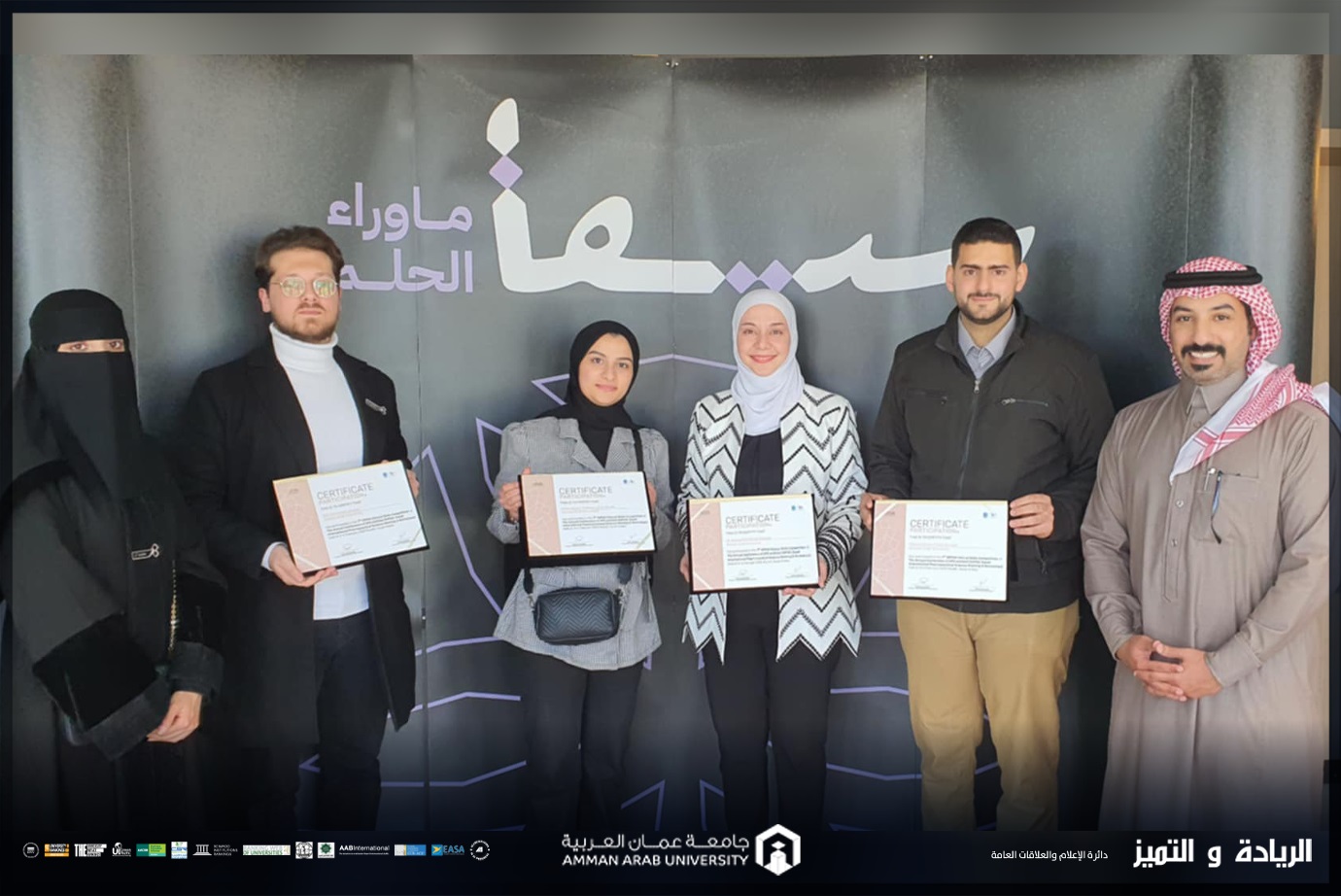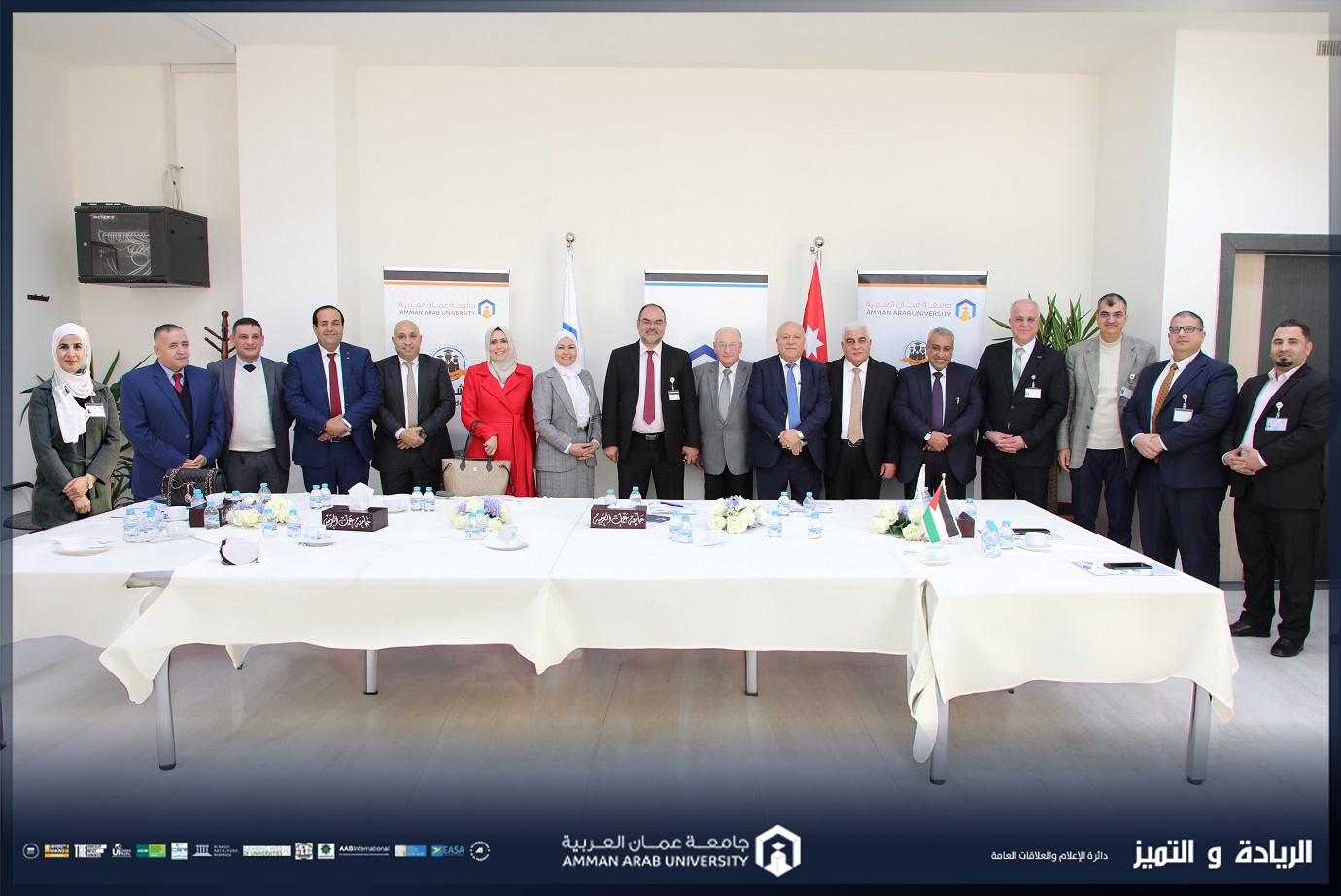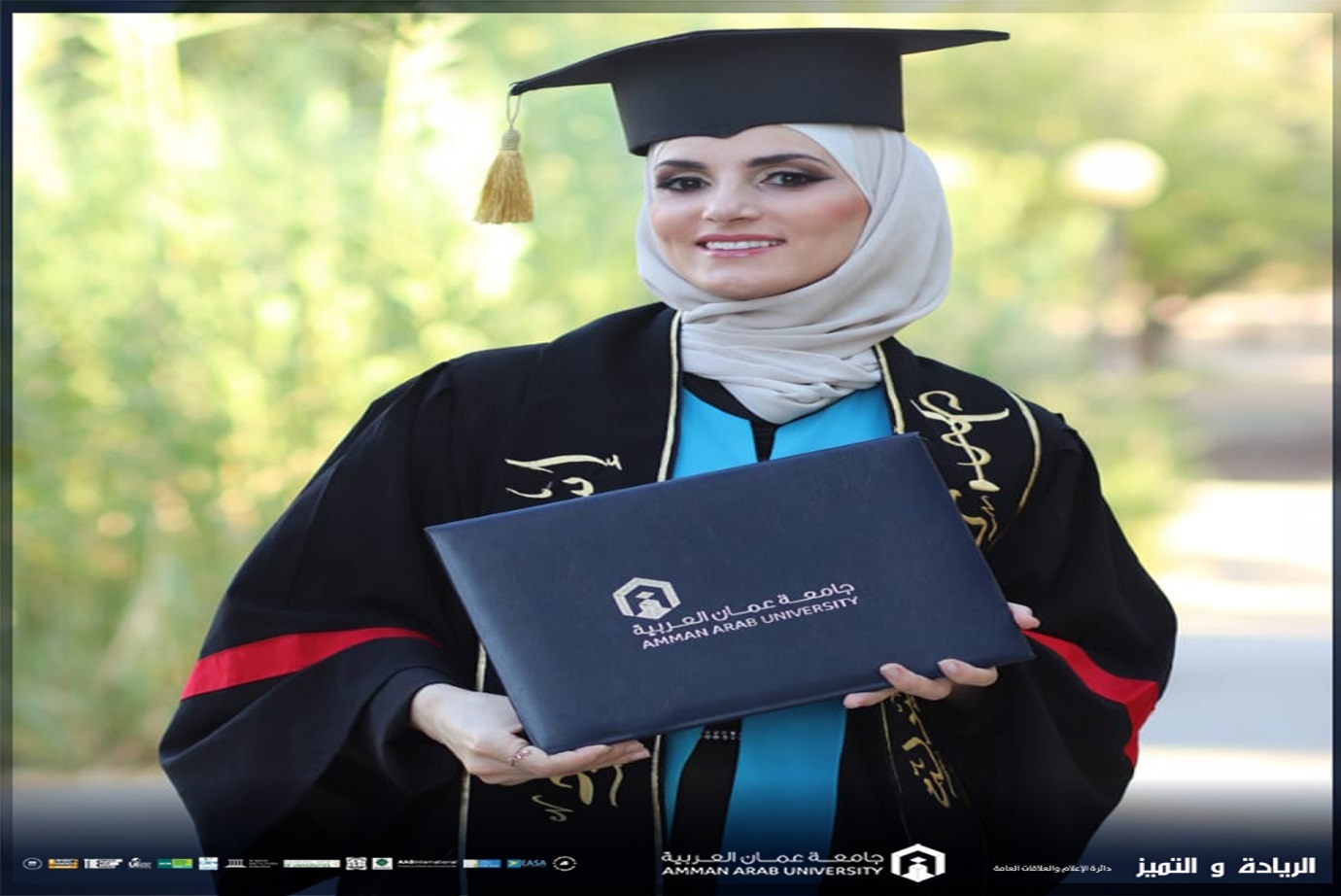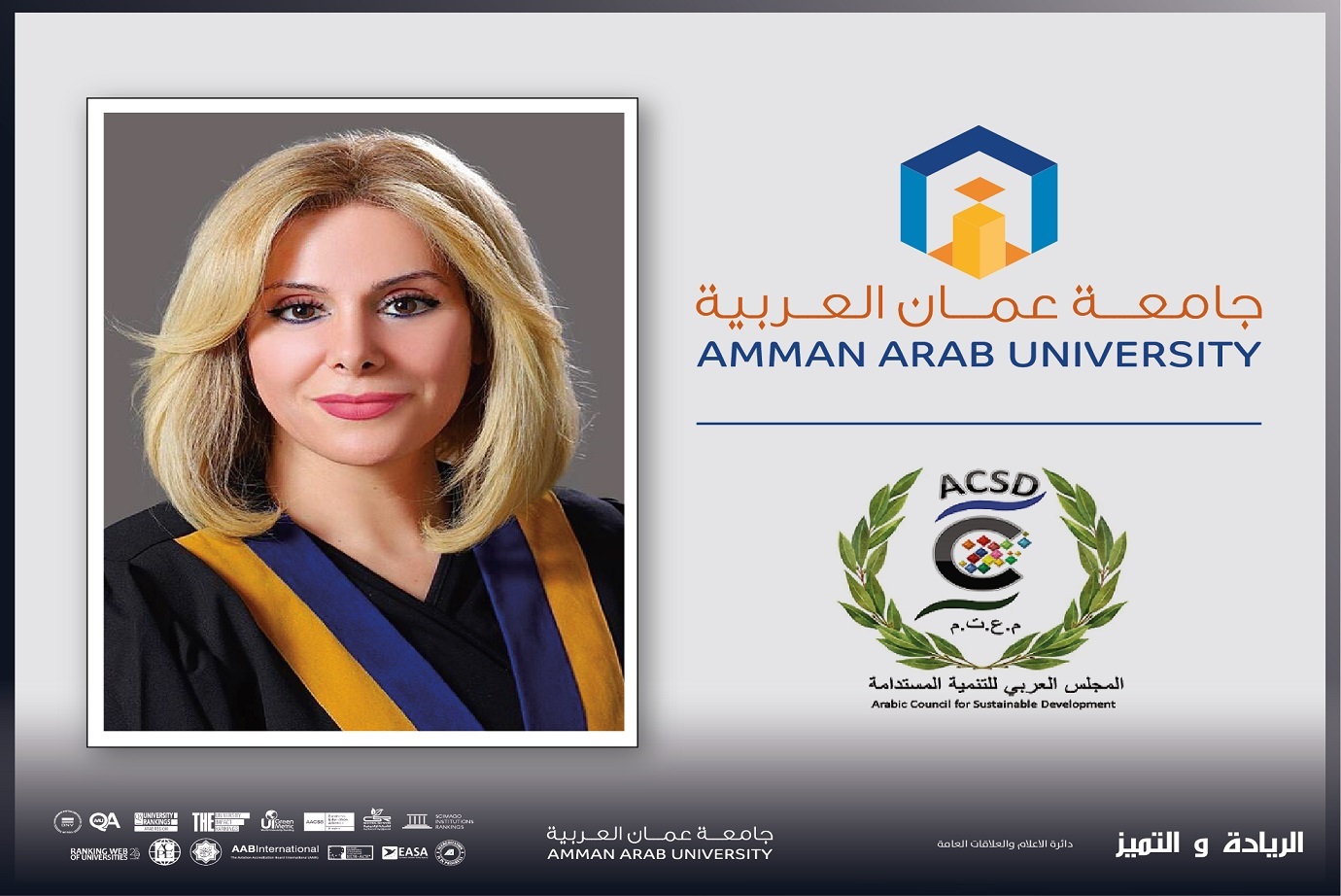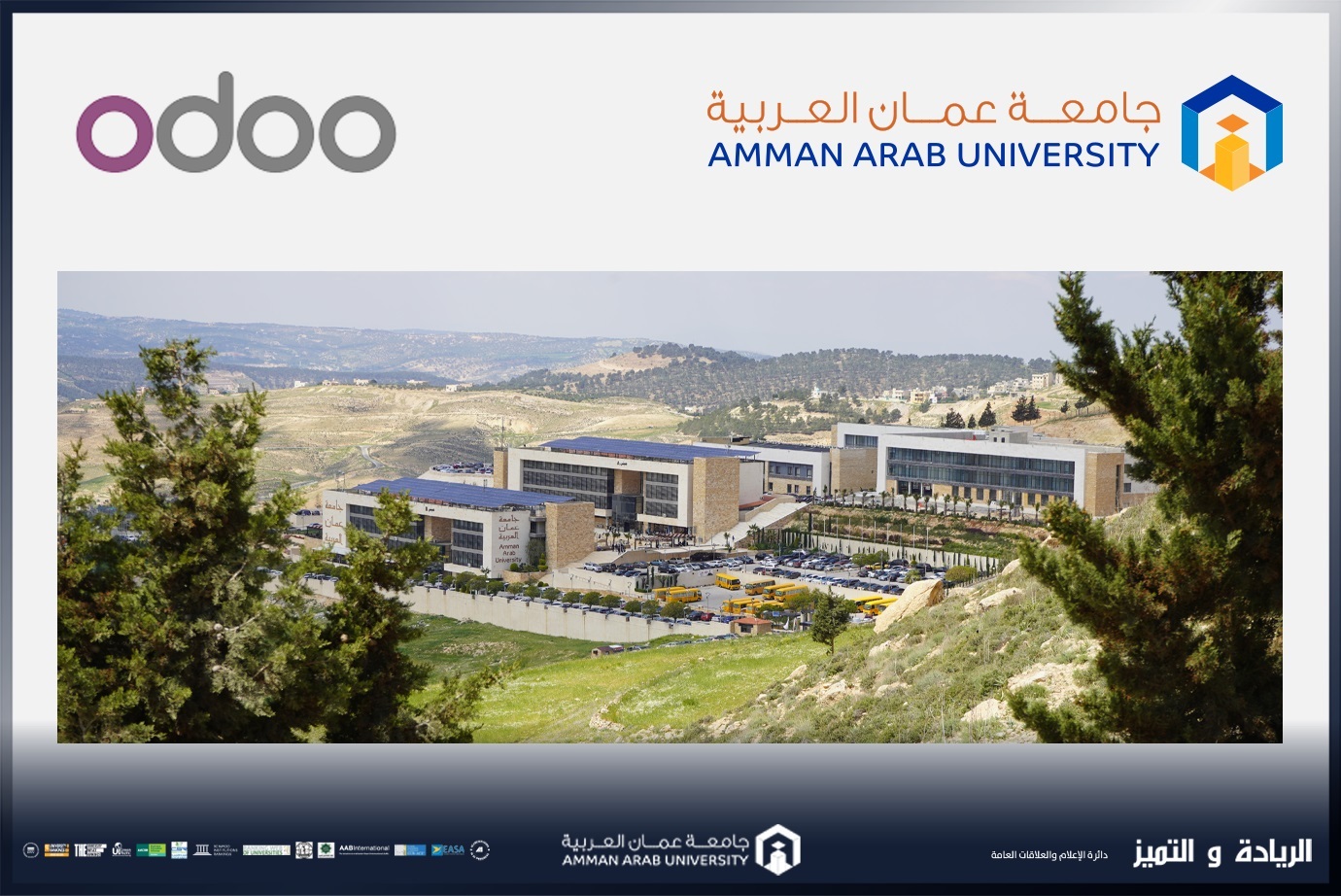
College of Business at Amman Arab University Implements a Training Course for the Union of Charitable Societies in Balqa’ Governorate
In order to enable the interactive relationship between Amman Arab University and the local community and creating an environment characterized by social responsibility, aiming to develop the relationship between the College of Business at the University and producers of charitable societies, and considering that charitable societies constitute one of the areas of interest of the University, College of Business at Amman Arab University seeks to consolidate the concepts of modern business that would promote associations to create a competitive advantage for them in the labor market. The college held a workshop for (40) productive charitable organizations entitled “Entrepreneurship and the Circular Economy,” carried out by a faculty member at the college, Dr. Moti’ Al-Shibli.
On this occasion, the Dean of the College, Professor. Hasan Al-Zoubi, confirmed that such scientific activities consolidate the applied concept among producers of charitable organizations through continuous study of the needs of the labor market and raising the potential and skills of the associations to suit these needs, and by listening to those with experience in the charitable organizations sector and learning about their most important human and production needs, which will help improve and develop their products.
For his part, lecturer and faculty member at the College of Business, Dr. Moti’ Al-Shibli, confirmed that this course and other future activities are among the objectives of the College of Business and the Department of Business Administration at Amman Arab University, as there is continuous communication with stakeholders in the surrounding areas to know their needs in the labor market and reduce the gap between their knowledge and the actual need of business organizations. He added that such activities that keep pace with developments in the labor market would raise the efficiency of charity producers and put them at the forefront by increasing their skills and raising their actual performance.
Dr. Al-Shibli stressed that this course is the first of its kind, which links entrepreneurship with the circular economy, reduces waste in manufacturing production processes, contributes to increasing profits and achieving food security, as it addressed several topics, including:
Introduction to entrepreneurship, environmental innovation, business model methodology for the circular economy, innovation in the circular economy, sustainable consumption and production, goals and importance of the circular economy, agri-food systems and economic sustainability, reformulating food in terms of sustainability, economic gains from the circular economy.









